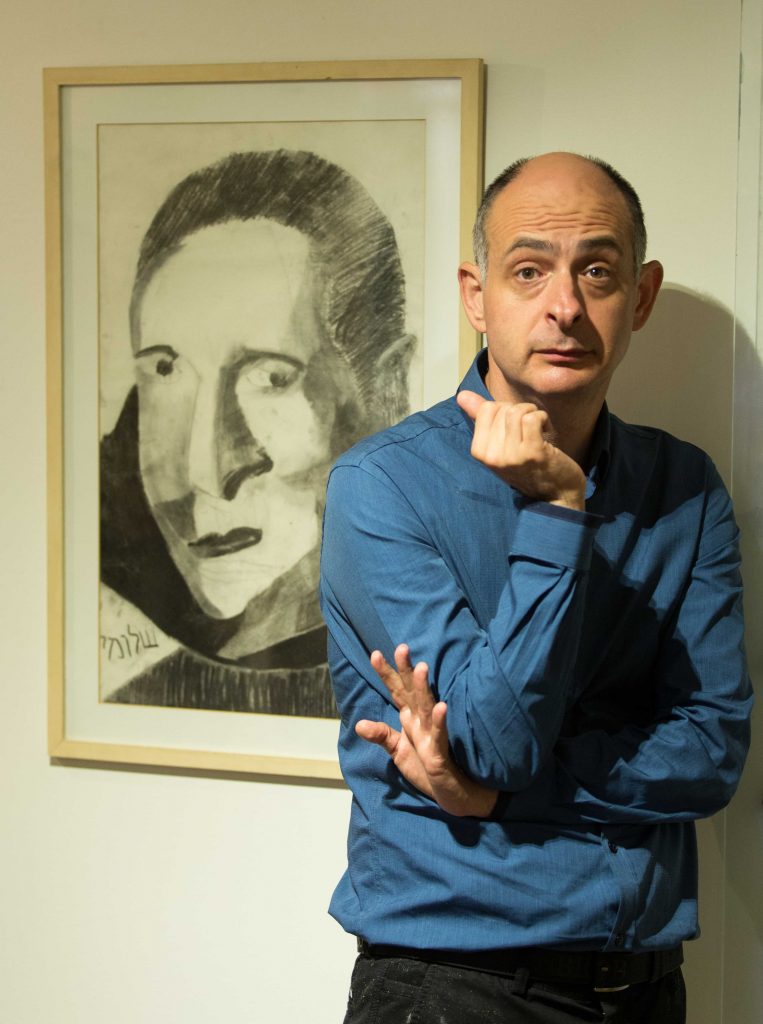
When one hears that an artist whose art one encounters is autistic, one naturally seeks to find traces of it in his or her art, but I am tempted to resist this temptation as much as possible. Shlomi Leizarov’s art is perhaps simplistic or childish or non-conforming to any particular style that is now taught in the so-called “art schools”, but then had he been a retired engineer or a high-tech entrepreneur, the same exact art would have been explained by his soaring intelligence rather than by any diagnosis.
We seem to hide, behind a facade of compassion and acceptance, a disturbing tendency to over-diagnose, to pigeon-hole, to segment people down to the level of gossip and once so pegged, these labels become indelible tattoos that taint everything they do. How many “English eccentrics” would have been diagnosed today as autistic? What do we know of the personal styles or behaviors of people like Isaac Newton or Michelangelo Buonarroti? The truth is that our ancestors’ sense of decorum and their righteous penchant for letting the people’s skills and talents do the talking put our gossipy modern age to shame.
Shlomi’s art, like all art worth viewing, stands on its own. I am uninterested in the back story and having read it try to simply ignore it. I see in his paintings objects that pass my “law office” test for art; if his paintings were to hang on the walls of a law office corridor, a corridor I was being led down to the conference room for an important meeting, would I make a mental note to myself to stop and look at them more closely when the meeting was over?
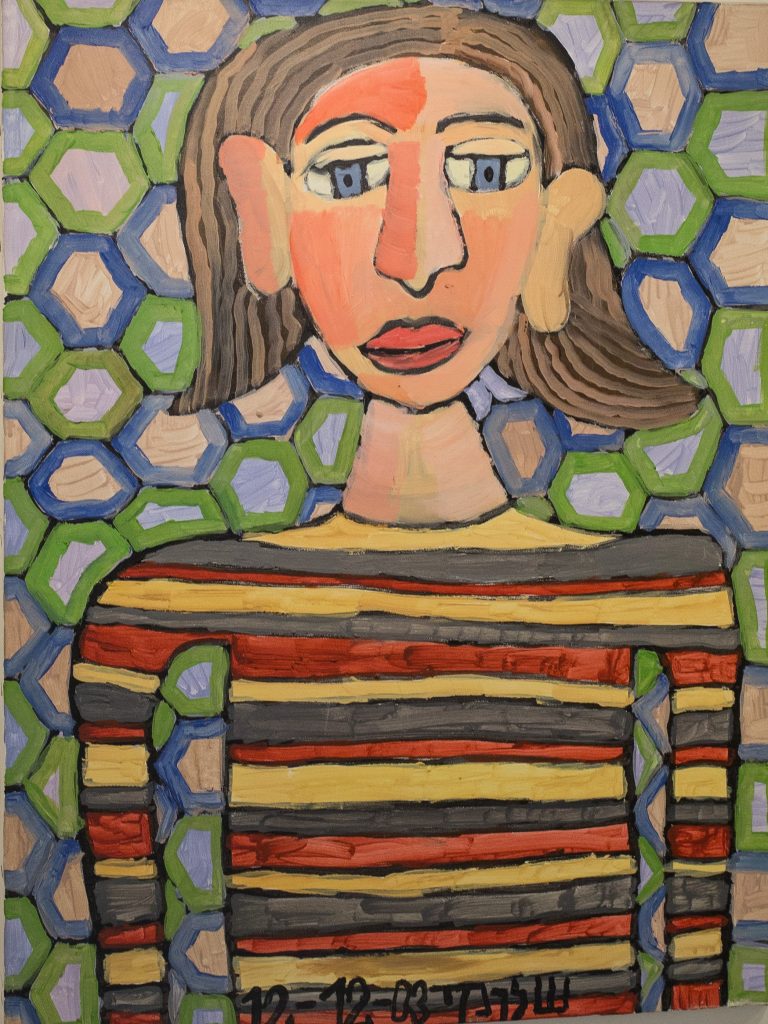
His portrait of his sister Dalit tells me something about her, her sad blue eyes and the incongruous background she is painted against leave me unsettled and also a little sad. The group portrait of the iconic Israeli rock group of 1970’s fame Kaveret, a group on whose songs my generation grew up, is spot on. The 70’s color palette, the so-called “Biblical sandals” that were the only footwear anyone wore in 1970’s Israel are all true to life and the names of the group members carefully written in childish handwriting on each of them really make the piece. Kaveret’s portrait brings back memories of when both I and they were fit and had heads full of curls and naivete.
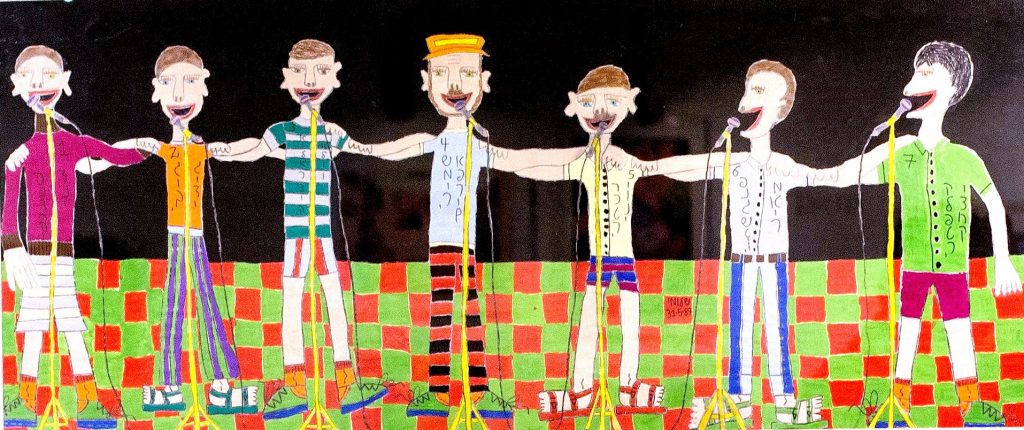
Shlomi’s painting of his classmates when he was 12 years old could have been a painting of my own class. I also had a “Yehudit”, though in my case she was my teacher. Number 5 Hannah (why are they numbered?) seems like a girl I would want to meet, though Number 6 Ara’le is perhaps better left alone. One knows with certainty that the numbers and the hairstyles, the objects and the gestures all had deep meaning to the twelve year-old Shlomi, meaning that is now lost, likely even to him, but that lost meaning is what makes the painting so delicious so worth viewing and thinking about.
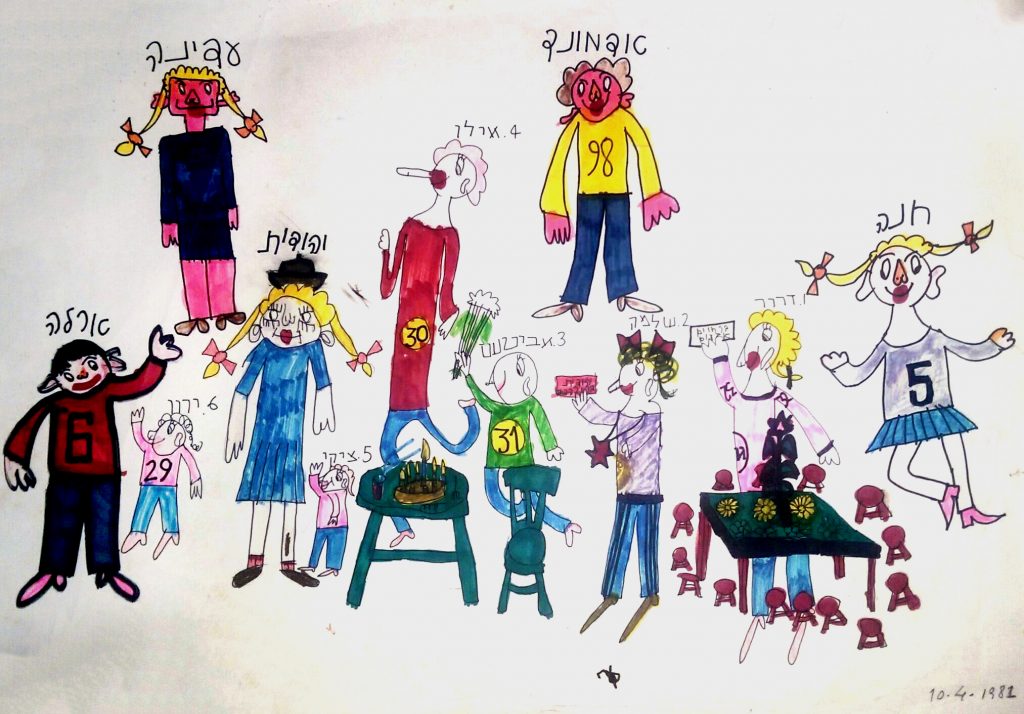
Things must not have gone very well in the picnic that is the subject of the eponymously named painting, perhaps because there were no women there, only strange-looking guys with funny hairdos. They remind me of the figures drawn on rock faces all around the world by ancient races long since gone, figures that make people speculate about alien visitations to our planet. In truth, there is plenty that is alien, much that defies explanation in all of us right here on Earth; there is no reason to look for it elsewhere. We humans have infinite complexities that will never be fully explained, which is what makes life so interesting and worth living.
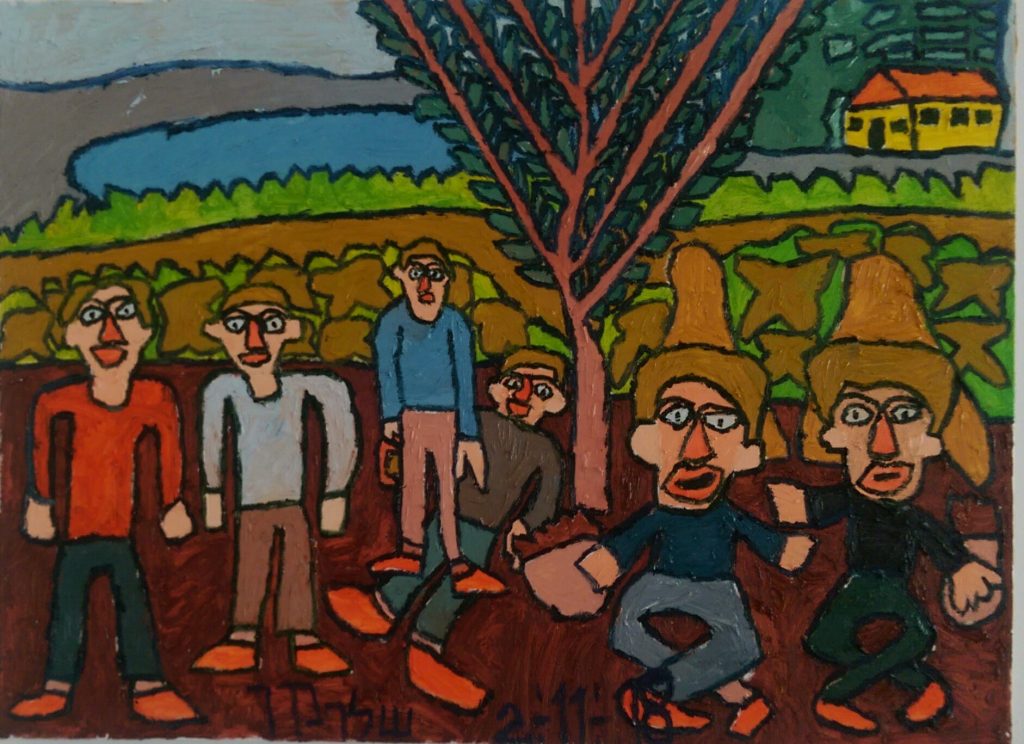
To me, this is the “takeaway” from Shlomi’s art, but you can experience it for yourself in his upcoming exhibition at the “Office Gallery” in Tel Aviv at 6 Zamenhoff St. The exhibition opens on August the 22nd at 7:30 PM and is curated by Rachel Sukman. For more details, please visit www.officeintelavivgallery.com.


